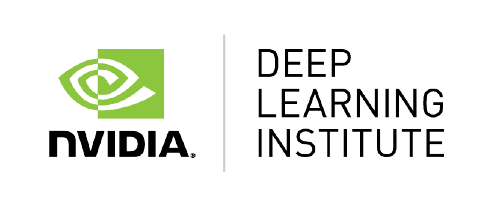Data Engineering is the foundation of data science and lays the groundwork for analysis and modeling. In order for organizations to extract knowledge and insights from structured and unstructured data, fast access to accurate and complete datasets is critical. Working with massive amounts of data from disparate sources requires complex infrastructure and expertise. Minor inefficiencies can result in major costs, both in terms of time and money, when scaled across millions to trillions of data points.In this workshop, we’ll explore how GPUs can improve data pipelines and how using advanced data engineering tools and techniques can result in significant performance acceleration. Faster pipelines produce fresher dashboards and machine learning (ML) models, so users can have the most current information at their fingertips
Accelerating Data Engineering Pipelines (ADEP)

Schedule
- No schedule events found for this course.
- PC
Private Class
Privately train a group of your employees at your facility, virtually, or any of our locations.
- PC
- LCLive Classroom
Live Classroom
Learn and interact with your instructor and peers in-person in our classrooms. - VCVirtual Classroom
Virtual Classroom
Attend any of our instructor-led classes virtually regardless of your physical location. - PCPrivate Class
Private Class
Privately train a group of your employees at your facility, virtually, or any of our locations. - GTRGuaranteed to Run
Guaranteed to Run
GTR classes are guaranteed to run as promised and delivered.
Course Summary
Show All
Description
Objectives
In this workshop, you will learn:
- How data moves within a computer. How to build the right balance between CPU, DRAM, Disk Memory, and GPUs. How different file formats can be read and manipulated by hardware.
- How to scale an ETL pipeline with multiple GPUs using NVTabular.
- How to build an interactive Plotly dashboard where users can filter on millions of data points in less than a second
Prerequisites
- Intermediate knowledge of Python (List comprehension, objects)
- Familiarity with pandas a plus >Introductory statistics (mean, median, mode)
Outline
Introduction (15 mins)
- Meet the instructor.
- Create an account at courses.nvidia.com/join
Data on the Hardware Level (60 mins)
Explore the strengths and weaknesses of different hardware approaches to data and the frameworks that support them:
-
Pandas
-
CuDF
-
Dask
ETL with NVTabulars (120 mins)
Learn how to scale an ETL pipeline from 1 GPU to many with NVTabular through the perspective of a big data recommender system.
-
Transform raw json into analysis-ready parquet files
-
Learn how to quickly add features to a dataset, such as Categorify and Lambda operators
Data Visualization (120 mins)
Step into the shoes of a meteorologist and learn how to plot precipitation data on a map. >Learn how to use descriptive statistics and plots like histograms in order to assess data quality
-
Learn effective memory usage, so users can quickly filter data through a graphical interface
Final Project: Data Detective (60 mins)
Users are complaining that the dashboard is too slow. Apply the techniques learned in class to find and eliminate efficiencies in the backend code.
Final Review (15 mins)
- Review key learnings and answer questions
- Complete the assessment and earn your certificate
- Complete the workshop survey
- Learn how to set up your own AI application development environmentNext Steps Continue learning with these DLI trainings:
- Fundamentals of Accelerated Computing with CUDA Python >Fundamentals of Accelerated Data Science
- High-Performance Computing with Containers